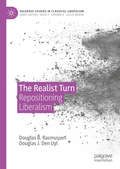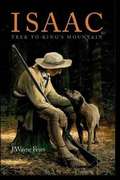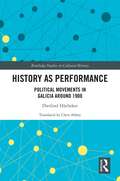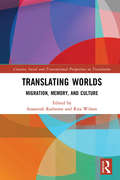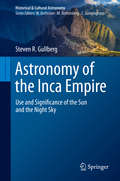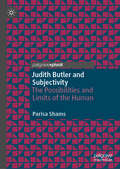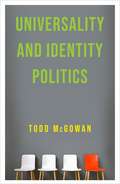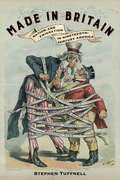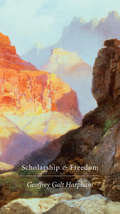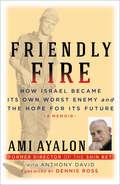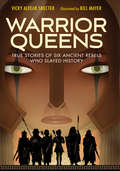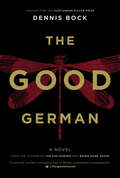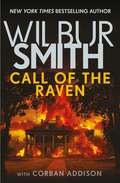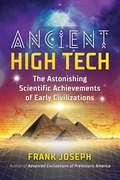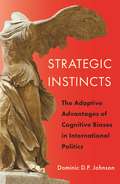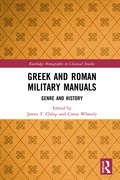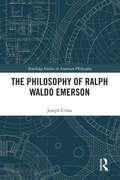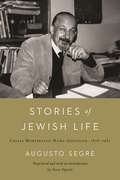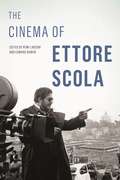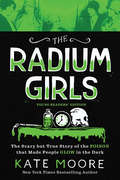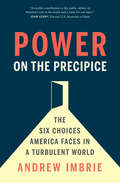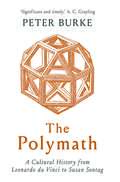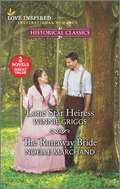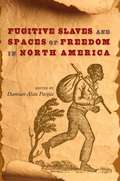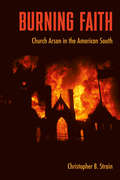- Table View
- List View
The Realist Turn: Repositioning Liberalism (Palgrave Studies in Classical Liberalism)
by Douglas B. Rasmussen Douglas J. Den UylDouglas B. Rasmussen and Douglas J. Den Uyl maintain that a realist turn—namely, one in which the natural order is the basis for individual rights—is needed to bring about a proper understanding and defense of liberty. They argue that the critical character of individual rights results from their being tethered to metaphysical realism. After reprising their explanation and defense of natural rights, Rasmussen and Den Uyl explain metaphysical realism and defend it against neo-pragmatist objections. They show it to be a formidable and preferable alternative to epistemic constructivism and crucial for a suitable understanding of ideal theory.
Isaac: Trek to King's Mountain
by J. Wayne FearsHunger, horrible weather, fatigue beyond imagination, constant tear of death, loneliness, and vengeance were constant companions of Isaac as he walked in moccasins, cross country, over 100 miles of wilderness terrain to fight in the American Revolution. Isaac-Trek to King's Mountain is the story of a teenage boy for whom isolation, daily wilderness survival, and Indian raids were not history lessons in a dusty book.They were 14 year old Isaac's life. This is a story of everyday pioneers overcoming great odds to enjoy liberty. It is a story about a boy's rapid adventure into manhood, because of his willingness to risk everything to avenge his father's death and to assure the freedom the Overmountain settlers wanted so bad.
History as Performance: Political Movements in Galicia Around 1900 (Routledge Studies in Cultural History #93)
by Dietlind HüchtkerThis study analyzes history as performance: as the interaction of actors, plays, stages and enactments. By this, it examines women’s politics in Habsburg Galicia around 1900: a Polish woman active in the peasant movement, a Ukrainian feminist, and a Jewish Zionist. It shows how the movements constructed essentialistically regarded collectives, experience as a medially comprehensible form of credibility, and a historically based inevitability of change, and legitimized participation and intervention through social policy and educational practices. Traits shared by the movements included the claim to interpretive sovereignty, the ritualization of participation, and the establishment of truths about past and future.
Translating Worlds: Migration, Memory, and Culture (Creative, Social and Transnational Perspectives on Translation)
by Susannah RadstoneThis international and interdisciplinary volume explores the relations between translation, migration, and memory. It brings together humanities researchers from a range of disciplines including history, museum studies, memory studies, translation studies, and literary, cultural, and media studies to examine memory and migration through the interconnecting lens of translation. The innovatory perspective adopted by Translating Worlds understands translation’s explanatory reach as extending beyond the comprehension of one language by another to encompass those complex and multi-layered processes of parsing by means of which the unfamiliar and the familiar, the old home and the new are brought into conversation and connection. Themes discussed include: How memories of lost homes act as aids or hindrances to homemaking in new worlds. How cultural memories are translated in new cultural contexts. Migration, affect, memory, and translation. Migration, language, and transcultural memory. Migration, traumatic memory, and translation.
Astronomy of the Inca Empire: Use and Significance of the Sun and the Night Sky (Historical & Cultural Astronomy)
by Steven R. GullbergAstronomy in the Inca Empire was a robust and fundamental practice. The subsequent Spanish conquest of the Andes region disrupted much of this indigenous culture and resulted in a significant loss of information about its rich history. Through modern archaeoastronomy, this book helps recover and interpret some of these elements of Inca civilization.Astronomy was intricately woven into the very fabric of Andean existence and daily life. Accordingly, the text takes a holistic approach to its research, considering first and foremost the cultural context of each astronomy-related site. The chapters necessarily start with a history of the Incas from the beginning of their empire through the completion of the conquest by Spain before diving into an astronomical and cultural analysis of many of the huacas found in the heart of the Inca Empire.Over 300 color images—original artwork and many photos captured during the author’s extensive field research in Machu Picchu, the Sacred Valley, Cusco, and elsewhere—are included throughout the book, adding visual insight to a rigorous examination of Inca astronomical sites and history.
Judith Butler and Subjectivity: The Possibilities and Limits of the Human
by Parisa ShamsThis book contextualises philosophy by bringing Judith Butler’s critique of identity into dialogue with an analysis of the transgressive self in dramatic literature. The author draws on Butler’s reflections on human agency and subjectivity to offer a fresh perspective for understanding the political and ethical stakes of identity as formed within a complex web of relations with human and non-human others. The book first positions a detailed analysis of Butler’s theory of subject formation within a broader framework of feminist philosophy and then incorporates examples and case studies from dramatic literature to argue that the subject is formed in relation to external forces, yet within its formation lies a space for transgressing the same environments and relations that condition the subject’s existence. By virtue of a fundamental dependency on conditions and relations that bring human beings into existence, they emerge as political and ethical agents capable of resisting the formative forces of power and responding – ethically – to the call of others.
Universality and Identity Politics
by Todd McGowanThe great political ideas and movements of the modern world were founded on a promise of universal emancipation. But in recent decades, much of the Left has grown suspicious of such aspirations. Critics see the invocation of universality as a form of domination or a way of speaking for others, and have come to favor a politics of particularism—often derided as “identity politics.” Others, both centrists and conservatives, associate universalism with twentieth-century totalitarianism and hold that it is bound to lead to catastrophe.This book develops a new conception of universality that helps us rethink political thought and action. Todd McGowan argues that universals such as equality and freedom are not imposed on us. They emerge from our shared experience of their absence and our struggle to attain them. McGowan reconsiders the history of Nazism and Stalinism and reclaims the universalism of movements fighting racism, sexism, and homophobia. He demonstrates that the divide between Right and Left comes down to particularity versus universality. Despite the accusation of identity politics directed against leftists, every emancipatory political project is fundamentally a universal one—and the real proponents of identity politics are the right wing. Through a wide range of examples in contemporary politics, film, and history, Universality and Identity Politics offers an antidote to the impasses of identity and an inspiring vision of twenty-first-century collective struggle.
Made in Britain: Nation and Emigration in Nineteenth-Century America
by Stephen TuffnellThe United States was made in Britain. For over a hundred years following independence, a diverse and lively crowd of emigrant Americans left the United States for Britain. From Liverpool and London, they produced Atlantic capitalism and managed transfers of goods, culture, and capital that were integral to US nation-building. In British social clubs, emigrants forged relationships with elite Britons that were essential not only to tranquil transatlantic connections, but also to fighting southern slavery. As the United States descended into Civil War, emigrant Americans decisively shaped the Atlantic-wide battle for public opinion. Equally revered as informal ambassadors and feared as anti-republican contagions, these emigrants raised troubling questions about the relationship between nationhood, nationality, and foreign connection. Blending the histories of foreign relations, capitalism, nation-formation, and transnational connection, Stephen Tuffnell compellingly demonstrates that the United States’ struggle toward independent nationhood was entangled at every step with the world’s most powerful empire of the time. With deep research and vivid detail, Made in Britain uncovers this hidden story and presents a bold new perspective on nineteenth-century trans-Atlantic relations.
Scholarship and Freedom
by Geoffrey Galt HarphamA powerful and original argument that the practice of scholarship is grounded in the concept of radical freedom, beginning with the freedoms of inquiry, thought, and expression. Why are scholars and scholarship invariably distrusted and attacked by authoritarian regimes? Geoffrey Galt Harpham argues that at its core, scholarship is informed by an emancipatory agenda based on a permanent openness to the new, an unlimited responsiveness to evidence, and a commitment to conversion. At the same time, however, scholarship involves its own forms of authority. As a worldly practice, it is a struggle for dominance without end as scholars try to disprove the claims of others, establish new versions of the truth, and seek disciples. Scholarship and Freedom threads its general arguments through examinations of the careers of three scholars: W. E. B. Du Bois, who serves as an example of scholarly character formation; South African Bernard Lategan, whose New Testament studies became entangled on both sides of his country’s battles over apartheid; and Linda Nochlin, whose essay “Why Have There Been No Great Women Artists?” virtually created the field of feminist art history.
Friendly Fire: How Israel Became Its Own Worst Enemy and the Hope for Its Future
by Ami Ayalon Anthony DavidIn this deeply personal journey of discovery, Ami Ayalon seeks input and perspective from Palestinians and Israelis whose experiences differ from his own. As head of the Shin Bet security agency, he gained empathy for "the enemy" and learned that when Israel carries out anti-terrorist operations in a political context of hopelessness, the Palestinian public will support violence, because they have nothing to lose. Researching and writing Friendly Fire, he came to understand that his patriotic life had blinded him to the self-defeating nature of policies that have undermined Israel's civil society while heaping humiliation upon its Palestinian neighbors. "If Israel becomes an Orwellian dystopia," Ayalon writes, "it won't be thanks to a handful of theologians dragging us into the dark past. The secular majority will lead us there motivated by fear and propelled by silence." Ayalon is a realist, not an idealist, and many who consider themselves Zionists will regard as radical his conclusions about what Israel must do to achieve relative peace and security and to sustain itself as a Jewish homeland and a liberal democracy.
Warrior Queens: True Stories of Six Ancient Rebels Who Slayed History
by Vicky Alvear ShecterThe true life stories of six little-known fierce ancient warrior queens are told with humor and vivid detail by an award-winning writer.For young readers seeking to be inspired by stories of strong women, this riveting book shines a light on six powerful ancient queens. Highlighting women warriors who ruled in ancient eras, like Hatshepsut in 1492 BCE Egypt, and Zenobia in 260 CE Palmyra, the stories span the globe to reveal the hidden histories of queens who challenged men and fought for the right to rule their queendoms. Award-winning author Vicky Alvear Shectar's lively text and acclaimed illustrator Bill Mayer's witty illustrations showcase these stories filled with history, power, and humor.
The Good German: A Novel
by Dennis BockIn November 1939, a German anti-fascist named Georg Elser came as close to assassinating Adolf Hitler as anyone ever had. In this gripping novel of alternate history, he doesn’t just come close—he succeeds. But he could never have imagined the terrible consequences that would follow from this act of heroism. Hermann Göring, masterful political strategist, assumes the Chancellery and quickly signs a non-aggression treaty with the isolationist president Joseph Kennedy that will keep America out of the war that is about to engulf Europe. Göring rushes the German scientific community into developing the atomic bomb, and in August 1944, this devastating new weapon is tested on the English capital. London lies in ruins. The war is over, fascism prevails in Europe, and Canada, the Commonwealth holdout in the Americas, suffers on as a client state of the Soviet Union. Georg Elser, blinded in the A-bombing of London, is shipped to Canada and quarantined in a hospice near Toronto called Mercy House. Here we meet William Teufel, a German-Canadian boy who in the summer of 1960 devises a plan that he hopes will distance himself from his German heritage and, unwittingly, brings him face to face with the man whose astonishing act of heroism twenty-one years earlier set the world on its terrifying new path. In this page-turning narrative, Bock has created an utterly compelling and original novel of historical speculation in the vein of Philip Roth’s The Plot Against America, John Wyndham’s The Chrysalids and Philip K. Dick’s cult classic The Man in the High Castle.
Call of the Raven
by Wilbur SmithThe new novel by Wilbur Smith and the prequel to A Falcon Flies.'The right of the cat over the mouse, of the strong over the weak. The natural law of existence.' Augustus Mungo St John, A Falcon Flies The son of a wealthy plantation owner and a doting mother, Augustus Mungo St John is accustomed to the wealth and luxuries his privilege has afforded him. That is until he returns from university to discover his family ruined, his inheritance stolen and his childhood sweetheart, Camilla, taken by the conniving Chester Marion. Fuelled by anger, and love, Mungo swears vengeance and devotes his life to saving Camilla - and destroying Chester. Camilla, trapped in New Orleans and powerless to her position as a kept slave and Chester's brutish behaviour, must learn to do whatever it takes to survive. As Mungo battles his own fate and misfortune to achieve the revenge that drives him, and regain his power in the world, he must question what it takes for a man to survive when he has nothing, and what he is willing to do in order to get what he wants. An action-packed and gripping adventure by bestselling author, Wilbur Smith, about one man's quest for revenge, the brutality of slavery in America and the imbalance between humans that can drive - or defeat - us.
Ancient High Tech: The Astonishing Scientific Achievements of Early Civilizations
by Frank JosephA detailed look into ancient advanced technology, science, and medicine--some of which has yet to be reproduced today • Explores countless examples of ancient high tech, including robotics, artificial intelligence, aircraft, solar-powered cannons, high-speed drills, illuminated underground temples, massive refrigerators, and subterranean cities • Examines evidence of advanced medicine in ancient times • Includes examples from ancient Egypt, China, Greece, Babylon, Siberia, the Americas, and India The first self-igniting match was invented in 1805 by Jean Chancel, a French chemist. Yet, in Babylon, 3,600 years before, identical sulfur matches were in common use. On the Panchavarnaswamy Temple in India, built millennia ago, there is a detailed carving of a man on a bicycle, yet the bicycle wasn&’t invented in the modern world until 1817. These inventions are only two examples of technology lost in the Dark Ages. Exploring the sophisticated tech achieved by ancient civilizations hundreds and thousands of years ago, Frank Joseph examines evidence of robotics and other forms of artificial intelligence; manned flight, such as hot-air balloons and gliders; and military science, including flamethrowers, biological warfare, poison gas, and solar-powered cannons. He reveals how ancient construction engineers excavated subterranean cities, turned stone walls into glass, lifted 100-ton blocks of granite, illuminated underground temples and pyramids, and stored their food in massive refrigerators. Examples explored in the book include the first known alarm clock, invented by Plato in 4th-century-BC Greece; 600-year-old Aztec whistles that reproduce animal sounds and human voices with uncanny accuracy; Stone Age jewelry from Siberia worked by a high-speed drill; sex robots in ancient Troy, Greece, and China; ancient Egyptian aircraft; and India&’s iron pillar exposed to sixteen hundred years of monsoons but still standing rust-free. The author also explores evidence of advanced medicine in ancient times, particularly in Egypt and China, from brain surgery, optometry, and prosthetics to dentistry, magnet therapy, and cancer cures.By examining the achievements of our ancient ancestors, we can not only reverse-engineer their inventions but also learn from their civilizations&’ mistakes, enabling us to avoid more dark ages. Imagine how scientifically advanced humanity would be if our early achievements had escaped destruction and been allowed to develop?
Strategic Instincts: The Adaptive Advantages of Cognitive Biases in International Politics (Princeton Studies in International History and Politics #172)
by Dominic D. Johnson"A very timely book."—Anne-Marie Slaughter, CEO of New AmericaHow cognitive biases can guide good decision making in politics and international relationsA widespread assumption in political science and international relations is that cognitive biases—quirks of the brain we all share as human beings—are detrimental and responsible for policy failures, disasters, and wars. In Strategic Instincts, Dominic Johnson challenges this assumption, explaining that these nonrational behaviors can actually support favorable results in international politics and contribute to political and strategic success. By studying past examples, he considers the ways that cognitive biases act as “strategic instincts,” lending a competitive edge in policy decisions, especially under conditions of unpredictability and imperfect information.Drawing from evolutionary theory and behavioral sciences, Johnson looks at three influential cognitive biases—overconfidence, the fundamental attribution error, and in-group/out-group bias. He then examines the advantageous as well as the detrimental effects of these biases through historical case studies of the American Revolution, the Munich Crisis, and the Pacific campaign in World War II. He acknowledges the dark side of biases—when confidence becomes hubris, when attribution errors become paranoia, and when group bias becomes prejudice. Ultimately, Johnson makes a case for a more nuanced understanding of the causes and consequences of cognitive biases and argues that in the complex world of international relations, strategic instincts can, in the right context, guide better performance.Strategic Instincts shows how an evolutionary perspective can offer the crucial next step in bringing psychological insights to bear on foundational questions in international politics.
Greek and Roman Military Manuals: Genre and History (Routledge Monographs in Classical Studies)
by James T. Chlup; Conor WhatelyThis volume explores the enigmatic primary source known as the ancient military manual. In particular, the volume explores the extent to which these diverse texts constitute a genre (sometimes unsatisfactorily classified as ‘technical literature’), and the degree to which they reflect the practice of warfare. With contributions from a diverse group of scholars, the chapters examine military manuals from early Archaic Greece to the Byzantine period, covering a wide range of topics including readership, siege warfare, mercenaries, defeat, textual history, and religion. Coverage includes most of the major contemporary siege manual writers, including Xenophon, Frontinus, Vegetius, and Maurice. Close examination of these texts serves to reveals the complex ways in which ancient Greeks, Romans, and Byzantines sought to understand better, and impose order upon, the seemingly irrational phenomenon known as war. Providing insight into the multifaceted collection of texts that constituted military manuals, this volume is a key resource for students and scholars of warfare and military literature in the classical and Byzantine periods.
The Philosophy of Ralph Waldo Emerson (Routledge Studies in American Philosophy)
by Joseph UrbasThis study offers the first comprehensive account of Emerson's philosophy since his philosophical rehabilitation began in the late 1970s. It builds on the historical reconstruction proposed in the author's previous book, Emerson's Metaphysics, and like that study draws on the entire Emerson corpus—the poetry and sermons included. The aim here is expository. The overall though not exclusive emphasis is on identity, as the first term of Emerson's metaphysics of identity and flowing or metamorphosis. This metaphysics, or general conception of the nature of reality, is what grounds his epistemology and ethics, as well as his esthetic, religious, and political thought. Acknowledging its primacy enables a general account like this to avoid the anti-realist overemphasis on epistemology and language that has often characterized rehabilitation readings of his philosophy. After an initial chapter on Emerson's metaphysics, the subsequent chapters devoted to the other branches of his thought also begin with their "necessary foundation" in identity, which is the law of things and the law of mind alike. Perception of identity in metamorphosis is what characterizes the philosopher, the poet, the scientist, the reformer, and the man of faith and virtue. Identity of mind and world is felt in what Emerson calls the moral sentiment. Identity is Emerson's answer to the Sphinx-riddle of life experienced as a puzzling succession of facts and events.
Stories of Jewish Life: Casale Monferrato-Rome-Jerusalem, 1876–1985 (Raphael Patai Series in Jewish Folklore and Anthropology)
by Augusto SegreStories of Jewish Life: Casale Monferrato-Rome-Jerusalem, 1876–1985 is an unconventional memoir—an integrated collection of short stories and personal essays. Author Augusto Segre was a well-known public figure in post–WWII Italy who worked as a journalist, educator, scholar, editor, activist, and rabbi. He begins his book with stories shaped from the oral narratives of his home community as it emerged from the ghetto era, continues with his own experiences under fascism and as a partisan in WWII, and ends with his emigration to Israel. Spanning the years 1876 (one generation after emancipation from the ghetto) to 1985 (one generation after the Shoah), Segre presents this period as an era in which Italian Jewry underwent a long-term internal crisis that challenged its core values and identity. He embeds the major cultural and political trends of the era in small yet telling episodes from the lives of ordinary people. The first half of the book takes place in Casale Monferrato—a small provincial capital in the Piedmont region in northwest Italy. The second half, continuing in Casale in the late 1920s but eventually shifting to Rome then Jerusalem, follows the experiences of a boy named Moshè (Segre’s Jewish name and his stand-in). Moshè relates episodes of Italian Jewry from the 1920s to the 1980s that portray the insidiousness of fascism as well as the contradictions within the Jewish community, especially in its post-ghetto relationship to Italian society. The painful transformation of Italian Jewry manifests itself in universal themes: the seductiveness of modern life, the betrayal of tradition, the attraction of fashionable political movements, the corrosive effects of totalitarianism, and ultimately, on the positive side, national rebirth and renewal in Israel. These themes give the book significance beyond the "small world" from which they arise because they are issues that confront any society, especially those emerging from a traditional way of life and entering the modern world. Students, scholars, and readers of Jewish history, Italian history, and fiction with an autobiographical thread will find themselves captivated by Segre’s stories.
The Cinema of Ettore Scola (Contemporary Approaches to Film and Media Series)
by Edward Bowen Rémi Lanzoni Mariapia Comand Fabrizio Cilento Millicent Marcus Francesca Borrione Christian Uva Pierre Sorlin Brian Tholl Emiliano Guaraldo Federica Colleoni Marina Vargau Nicoletta Marini-Maio Dario Marcucci Luca Zamparini Gian Piero BrunettaThe Cinema of Ettore Scola offers contemporary perspectives on Ettore Scola (1931–2016), one of the premier filmmakers of Italian cinema. Scola was a crucial figure in postwar Italy as a screenwriter of comedies in the 1950s and 1960s who later became one of the country’s most beloved directors in the 1970s and 1980s with his bittersweet comedies and dramas on history, politics, and social customs. While Scola has received extensive attention from scholars based in Italy and France, Rémi Lanzoni and Edward Bowen’s edited volume is the first English-language book on Scola’s cinematographic career. The volume (containing fourteen chapters) is organized in four parts, the first two of which focus both on Scola’s contributions to Comedy Italian Style—as a screenwriter and director—and his commentaries on the history of Italy, Rome, and the film industry. The second half of the book is divided into sections on Scola’s relationship to and use of place, politics, and legacy. Mariapia Comand’s chapter begins the volume with an exploration of the development of Scola’s narrative methods by examining his early work as an illustrator, ghostwriter, and screenwriter. Later, Brian Tholl approaches one of Scola’s best-known and most frequently studied films, Una giornata particolare, from a less-explored perspective, namely its commentary on surveillance and internal exile, or confino, during the fascist period. At the close of the volume is a broad-sweeping tribute to and reflection on Scola’s filmmaking by Gian Piero Brunetta, a leading historian of Italian cinema who developed a close relationship with Scola over the years, who reveals the varied narrative strategies linked to food that the director utilized for character development and social commentary. The Cinema of Ettore Scola makes Scola accessible to English-reading audiences and helps readers better understand his film style, the major themes of his work, and the representations of twentieth-century Italian history in his films.
The Radium Girls: The Scary but True Story of the Poison that Made People Glow in the Dark
by Kate MooreAn inspiring and engaging historical nonfiction book for kids 9 to 12, this newly adapted young readers' edition of the acclaimed national bestseller tells the story of America's glowing girls and their brave fight for justiceAmid the excitement of the early twentieth century, hundreds of young women spend their days hard at work painting watch dials with glow-in-the-dark radium paint. The painters consider themselves lucky—until they start suffering from a mysterious illness. As the corporations try to cover up a shocking secret, these shining girls suddenly find themselves at the center of a deadly scandal.The Radium Girls tells the unbelievable true story of these incredible women, whose determination to fight back saved countless lives.This enthralling and accessible young readers' edition of the New York Times and USA Today bestseller includes all-new material, including a glossary, timeline, and dozens of bonus photos.
Power on the Precipice: The Six Choices America Faces in a Turbulent World
by Andrew ImbrieAn essential guide to renewing American leadership in a turbulent, polarized, and postdominant world Is America fated to decline as a great power? Can it recover? With absorbing insight and fresh perspective, foreign policy expert Andrew Imbrie provides a road map for bolstering American leadership in an era of turbulence abroad and deepening polarization at home. This is a book about choices: the tough policy trade-offs that political leaders need to make to reinvigorate American money, might, and clout. In the conventional telling, the United States is either destined for continued dominance or doomed to irreversible decline. Imbrie argues instead that the United States must adapt to changing global dynamics and compete more wisely. Drawing on the author’s own experience as an adviser to Secretary of State John Kerry, as well as on interviews and comparative studies of the rise and fall of nations, this book offers a sharp look at American statecraft and the United States’ place in the world today.
The Polymath: A Cultural History from Leonardo da Vinci to Susan Sontag
by Peter BurkeThe first history of the western polymath, from the fifteenth century to the present day From Leonardo Da Vinci to John Dee and Comenius, from George Eliot to Oliver Sacks and Susan Sontag, polymaths have moved the frontiers of knowledge in countless ways. But history can be unkind to scholars with such encyclopaedic interests. All too often these individuals are remembered for just one part of their valuable achievements. In this engaging, erudite account, renowned cultural historian Peter Burke argues for a more rounded view. Identifying 500 western polymaths, Burke explores their wide-ranging successes and shows how their rise matched a rapid growth of knowledge in the age of the invention of printing, the discovery of the New World and the Scientific Revolution. It is only more recently that the further acceleration of knowledge has led to increased specialisation and to an environment that is less supportive of wide-ranging scholars and scientists. Spanning the Renaissance to the present day, Burke changes our understanding of this remarkable intellectual species.
Lone Star Heiress & The Runaway Bride
by Winnie Griggs Noelle MarchandA groom to the rescueLone Star Heiress by Winnie GriggsAdventurous Ivy Feagan is headed to Turnabout, Texas, to claim an inheritance when an accident leads to an unexpected rescue by widowed schoolteacher Mitch Parker. But when town gossips target Mitch and Ivy’s friendship, he proposes to save her reputation. Ivy doesn’t want to marry for honor and doesn’t need to marry for money. She’ll only agree to a proposal made for love’s sake!The Runaway Bride by Noelle MarchandLeaving town for a fresh start, runaway bride Lorelei Wilkins never suspects her parents will send Sheriff Sean O’Brien—the only husband she’s ever wanted—to bring her home! After an innocent mistake leaves Lorelei and her reluctant rescuer with compromised reputations, marriage is their only option. Will this inconvenient groom and stubborn bride realize that only love can conquer all?
Fugitive Slaves and Spaces of Freedom in North America (Southern Dissent)
by Damian Alan PargasThis volume introduces a new way to study the experiences of runaway slaves by defining different “spaces of freedom” they inhabited. It also provides a groundbreaking continental view of fugitive slave migration, moving beyond the usual regional or national approaches to explore locations in Canada, the U.S. North and South, Mexico, and the Caribbean. Using newspapers, advertisements, and new demographic data, contributors show how events like the Revolutionary War and westward expansion shaped the slave experience. Contributors investigate sites of formal freedom, where slavery was abolished and refugees were legally free, to determine the extent to which fugitive slaves experienced freedom in places like Canada while still being subject to racism. In sites of semiformal freedom, as in the northern United States, fugitives’ claims to freedom were precarious because state abolition laws conflicted with federal fugitive slave laws. Contributors show how local committees strategized to interfere with the work of slave catchers to protect refugees. Sites of informal freedom were created within the slaveholding South, where runaways who felt relocating to distant destinations was too risky formed maroon communities or attempted to blend in with free black populations. These individuals procured false documents or changed their names to avoid detection and pass as free. The essays discuss slaves’ motivations for choosing these destinations, the social networks that supported their plans, what it was like to settle in their new societies, and how slave flight impacted broader debates about slavery. This volume redraws the map of escape and emancipation during this period, emphasizing the importance of place in defining the meaning and extent of freedom. Contributors: Kyle Ainsworth | Mekala Audain | Gordon S. Barker | Sylviane A. Diouf | Roy E. Finkenbine | Graham Russell Gao Hodges | Jeffrey R. Kerr-Ritchie | Viola Franziska Müller | James David Nichols | Damian Alan Pargas | Matthew Pinsker A volume in the series Southern Dissent, edited by Stanley Harrold and Randall M. Miller
Burning Faith: Church Arson in the American South (Southern Dissent)
by Christopher B. StrainIn the 1990s, churches across the southeastern United States were targeted and set ablaze. These arsonists predominately targeted African American congregations and captured the attention of the media nationwide. Using oral histories, newspaper accounts, and governmental reports, Christopher Strain gives a chronological account of the series of church fires. Burning Faith considers the various forces at work, including government responses, civil rights groups, religious forces, and media coverage, in providing a thorough, comprehensive analysis of the events and their fallout. Arguing that these church fires symbolize the breakdown of communal bonds in the nation, Strain appeals for the revitalization of united Americans and the return to a sense of community. Combining scholarly sophistication with popular readability, Strain has produced one of the first histories of the last decade and demonstrates that the increasing fragmentation of community in America runs deeper than race relations or prejudice. A volume in the series Southern Dissent, edited by Stanley Harrold and Randall M. Miller
